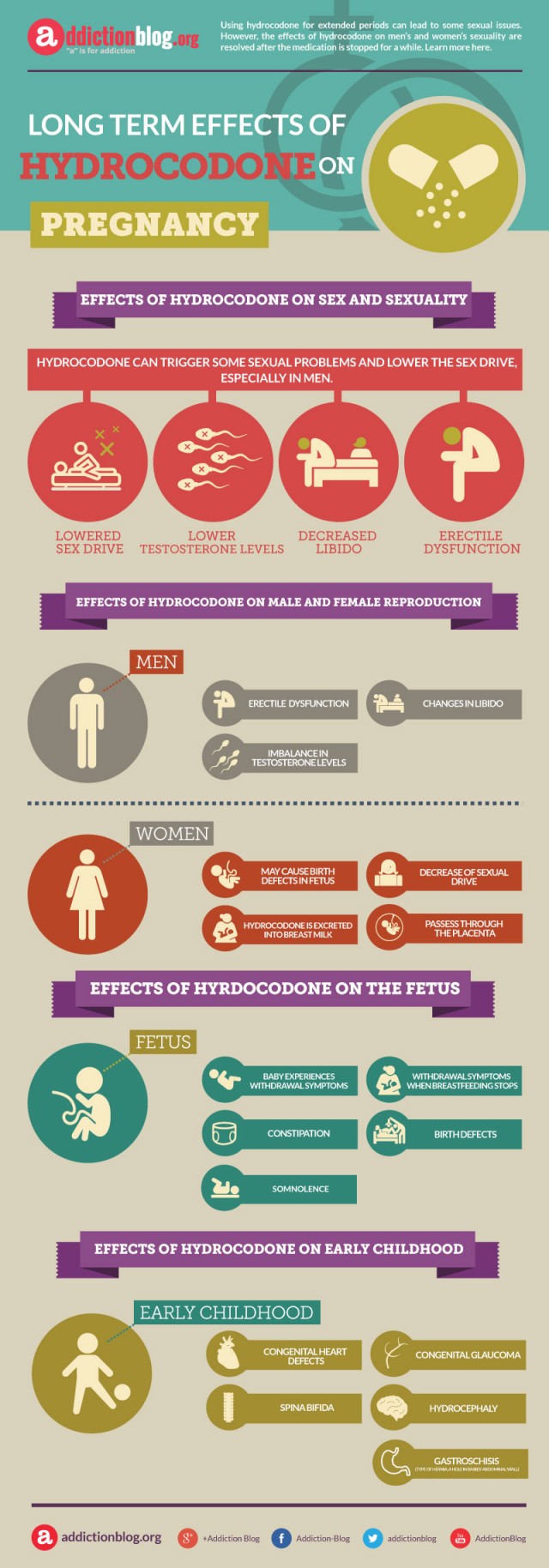Effects of Hydrocodone on sex and sexuality
Hydrocodone can trigger some sexual problems and lower the sex drive, especially in men.
Effects: decreased libido, erectile dysfunction, lower testosterone levels, lowered sex drive.

Effects of Hydrocodone on male and female reproduction
Effects on male reproduction
- changes in libido
- erectile dysfunction
- imbalance in testosterone levels
Effects on female reproduction
Hydrocodone has not been associated with the absence or delay of the menstrual cycle. It can be extremely effective in treating menstrual cramps, but isn’t generally prescribed unless other treatments (such as NSAID’s) have failed. However, taking hydrocodone for a long period of time can influence a woman’s sexual desire, and cause fetal problems. Some of the implications include:
- decreased sexual drive
- hydrocodone is excreted into breast milk
- may cause birth defects in fetus
- passes through the placenta
Effects on a fetus
Hydrocodone is listed in pregnancy category C for typical brief use for acute pain. It crosses the placenta and reaches the fetal circulation. Large frequent doses of hydrocodone may cause birth defects.
If hydrocodone is taken during pregnancy the infant can go through severe withdrawal upon birth. Withdrawal symptoms include:
- fever
- hyperactive reflexes
- irritability and excessive crying
- increased respiratory rate
- increased stools
- sneezing
- tremors
- yawning
- vomiting
If the newborn is breastfed while the mother is on hydrocodone, it can experience symptoms of constipation and somnolence.
Effects on early childhood
Birth defects that can influence a child’s life during early childhood development or may impact his or her life forever, and that may be caused by mothers chronically using larger doses of hydrocodone during pregnancy, include:
- congenital heart defects
- congenital glaucoma
- gastroschisis (type of hernia, a hole in babies’ abdominal wall)
- hydrocephaly
- spine bifida








Related Posts